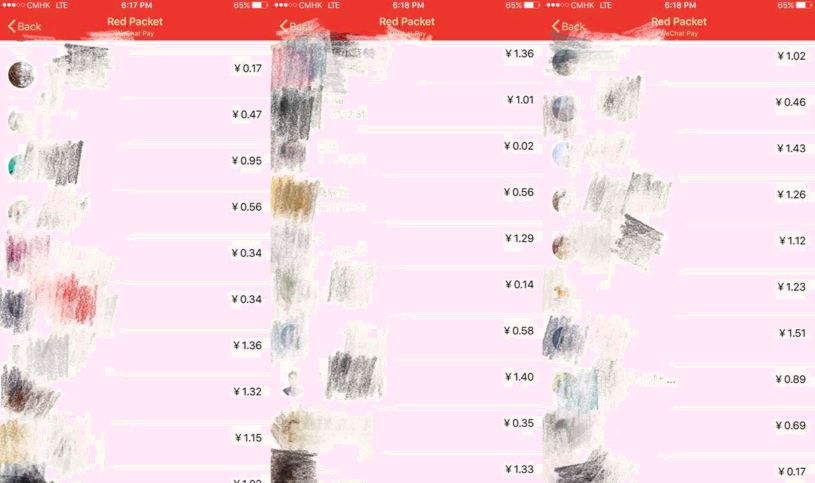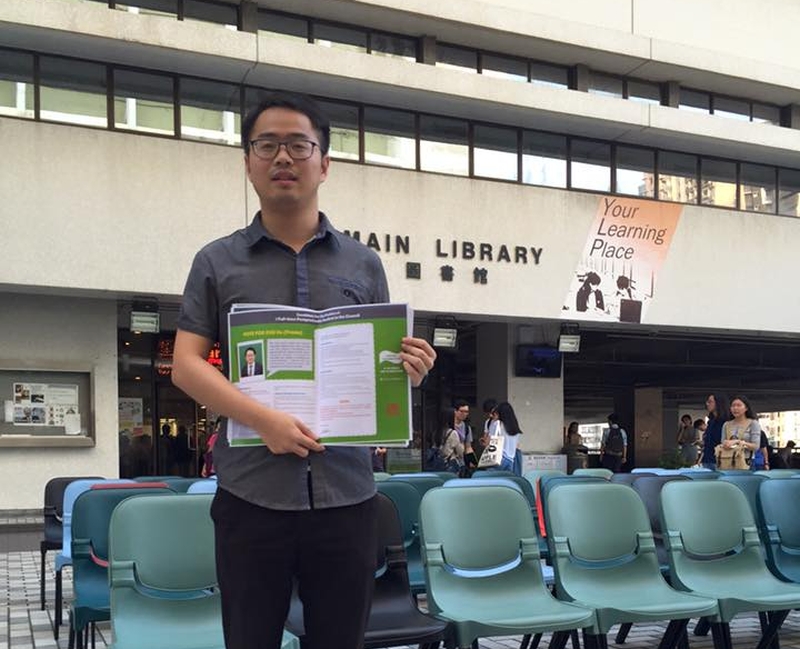The Court of First Instance has granted leave for a judicial review challenge against a decision by the top governing body of the University of Hong Kong (HKU) to dismiss complaints about a campus election bribery scandal.
HKU law student Michael Mo Kwan-tai filed the challenge in January, and was granted leave on Tuesday. He is seeking to appeal a decision announced Monday by the Legal Aid Department to reject his aid request.

“I still need to appeal against the [Legal Aid Department’s] decision, but I am confident that they will change their mind,” Mo told HKFP.
Mo said in his application that the HKU Council’s decision to dismiss his complaint without a full investigation infringed on his right to take part in public affairs. The Council also failed to take into account all relevant information in arriving at the decision, Mo argued.
‘Buy votes’
Last October, Mo accused his opponent, mainland student Printa Zhu Ke, of buying votes from classmates during a campus election for the HKU Council postgraduate student representative.
Mo received tip-offs from two students who gave him screenshots that allegedly showed Zhu distributing his campaign details and virtual red packets containing money to his classmates via messaging app WeChat. Several students told Zhu that they had voted for him after he sent out the red packets.
Zhu said in response that the money was to reimburse those who had helped him with campaign promotion. He uploaded screenshots of his red packet account, which showed that the amounts transacted were all below RMB2.

The HKU Council said a week later that it would not open an investigation on the basis that the amount – totalling RMB80 – given out by Zhu was “immaterial.” Zhu, who represented postgraduate students on the Council in 2015, was re-elected into the governing body afterwards.
The Council’s decision sparked public outcry. Groups representing HKU students, staff and alumni called for a probe and slammed the decision for being “unreasonable and inappropriate.”
The Independent Commission Against Corruption (ICAC) also declined to investigate the case, citing lack of jurisdiction.
Mo took the HKU Council to court three months after the scandal broke out. He said at the time: “This ridiculous university’s governing body has caused a university running on Hong Kong taxpayers’ money to no longer prioritise the interests of Hongkongers.”
‘Cultural difference’
Meanwhile, Zhu said in an interview with news outlet Initium that Hongkongers do not understand China’s virtual red packet culture, which he said is a game designed to “lighten the mood.” He said there is no obligation to accept the packets and that he had no intention of buying votes.

Critics argued that cultural differences should not be an excuse, especially since any acts of bribery – including perceived ones – have a corrosive effect on the electoral system.
Hong Kong laws do not draw a line on what constitutes a bribe in terms of monetary value, though an ICAC-drafted document for new immigrants says that an “advantage is not defined by any amount” and that a HK$20 red packet is considered an advantage.
